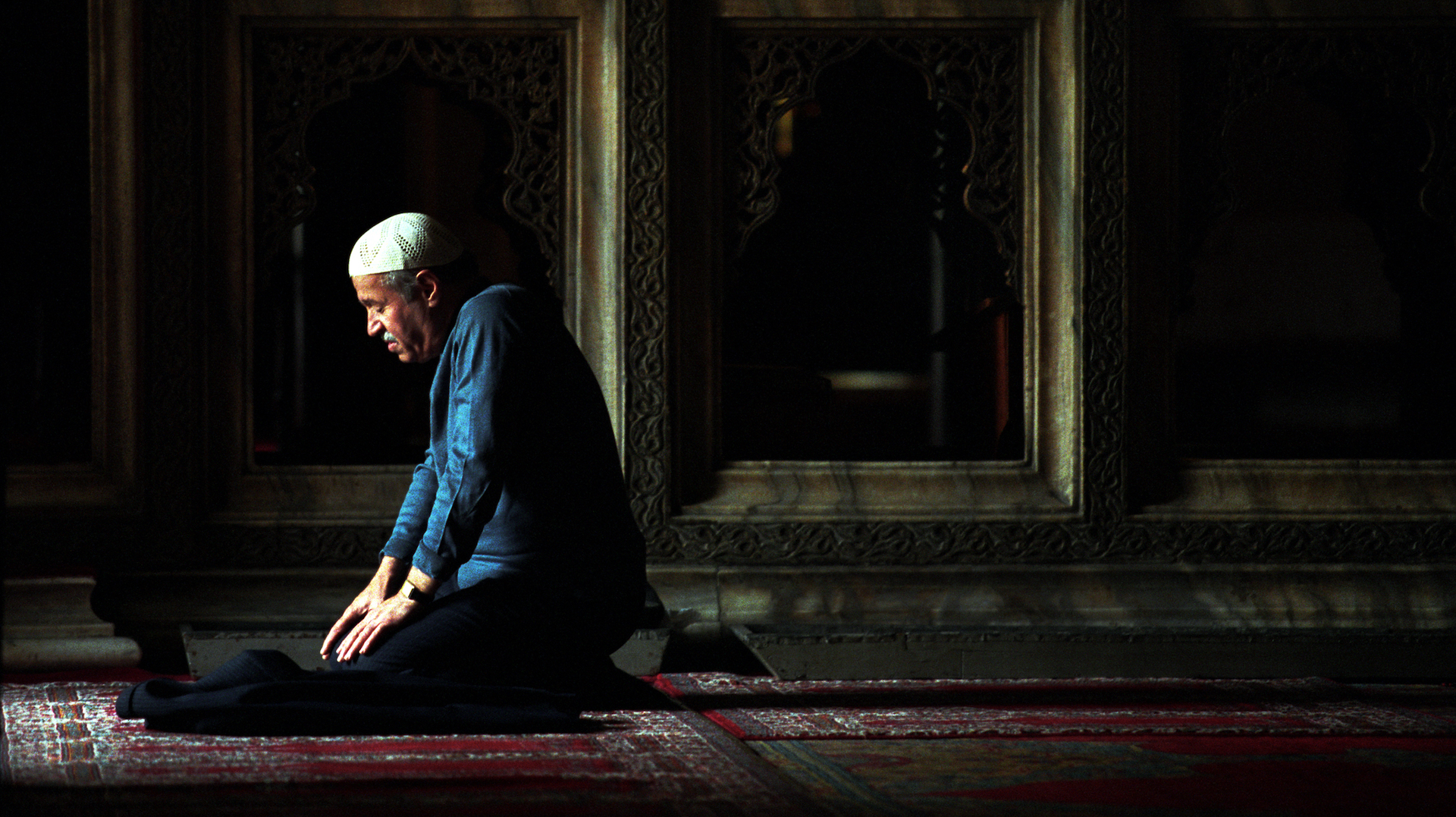
“May Allah accept your fast,” Mustafa,* the owner of a small grocery store in Central Asia, intoned as he bagged a customer’s groceries. “Amen, if Allah wills,” replied the customer dutifully. Such exchanges are common toward the end of the Islamic holy month of Ramadan when many Muslims offer this hope-filled blessing to one another. Yet the sweetness of the phrase veils an ominous uncertainty: what if Allah refuses to accept their fast?
The thirty-day Ramadan fast commemorates the revelation of Islam’s holy book, the Qur’an. According to Muslims, the Qur’an was dictated to Mohammad by the archangel Gabriel. Each day at sunrise—traditionally the moment when there is light enough to distinguish a black thread from a white thread—the first call to prayer resounds, signaling not only a time to pray but also the beginning of the day’s fast.
“Muslims fast primarily to express their submission to Allah.”
Daylight hours bring a peculiar quiet to Muslim cities, ordinarily bustling with activity, as people strive to conserve energy. Vendors who spend their day loudly enticing people to enter their restaurants are absent. Tea houses are empty. To fulfill the fast, Muslims must not allow anything to pass through their lips during daylight hours, including water or even cigarette smoke. They are also expected to abstain from sexual relations. There are some exempt from the fast, such as children and those impaired from keeping it due to reasons such as illness and travel, who can opt to make up the fast at a later time.
Why Muslims Fast
Whereas fasting in other traditions is sometimes associated with health benefits, political advocacy, or the ascetic rejection of the world, such is not the case with Islam. Islam affirms the goodness of creation and human enjoyment of creation in moderation, evidenced by the feast that takes place each evening when the fast is broken at sunset. Instead, Muslims fast primarily to express their submission to Allah.
Apart from martyrdom in the service of Allah, Islam does not offer its followers assurance of salvation, so a Muslim’s hopes for salvation hinge on their perpetual submission to Allah. Indeed, the very word Islam means “submission” and Muslim means “one who submits.” Fasting during Ramadan represents one of five key acts of submission known as Islam’s pillars, which also include the profession of Allah as the one true God and Mohammad as his prophet, ritual prayer conducted at least five times daily, alms-giving, and pilgrimage to Mecca, Islam’s holiest site.
Of the five pillars, the Ramadan fast is one of the most widely practiced—even more than the daily prayers. Though Muslim fasting is not limited to Ramadan, it is said to be multiple times more effective during Ramadan, as are the daily prayers. Many Muslims who are otherwise lax in religious practice the remainder of the year are stirred to renewed fervor during Ramadan. Consequently, the fast becomes an intensely communal act, transforming the entire social order. Work schedules are often inverted, cities come to life after dark, and families, friends, and relatives gather each evening to break the fast and spend time together long into the night. Incidentally, this dynamic makes Ramadan one of the most challenging seasons faced by Christians from a Muslim background as they negotiate the tensions between communal pressure and their newfound faith in the Messiah.
Muslim Fasting vs. Christian Fasting
Christian fasting shares with Muslim fasting a desire to tangibly demonstrate that there is something—more precisely Someone—more ultimate than the gifts of creation. Like Muslims, Christians reject both the paths of asceticism and indulgence (Col. 2:23). But Muslim and Christian fasting are still fundamentally different. Christian fasting is rooted in the completed work of Christ, to which our fasting can add nothing. Whereas Muslim fasting represents a longing for acceptance through the demonstration of submission, Christian fasting represents a longing for the One who purchased our acceptance by submitting himself even unto death (Phil. 2:8).
“Whereas Muslim fasting represents a longing for acceptance through the demonstration of submission, Christian fasting represents a longing for the One who purchased our acceptance by submitting himself even unto death.”
In Matthew 9, disciples of John the Baptist questioned Jesus, asking why his disciples do not fast. Jesus replied, “Can the wedding guests mourn as long as the bridegroom is with them? The days will come when the bridegroom is taken away from them, and then they will fast” (Matt. 9:15 ESV). When Christians fast, we express our soul’s deep satisfaction in our Savior, who stands far above his good gifts. We express our longing for Christ’s return and the fullness of his presence.
Some have suggested Christians should fast in solidarity with Muslims during Ramadan as an act of Christian love. There may be good reasons for Christians to fast during Ramadan, not least of which includes a hunger for God to move powerfully in the salvation of Muslim peoples. Yet fasting alongside Muslims in solidarity with their efforts, however well-intentioned, is unwise. For how can Christians express solidarity with religious striving that leads to death?
Instead, Christians can demonstrate love toward Muslim friends by refraining from eating in their presence or by offering assistance in the burdensome daily chore of preparing food for the iftar meal, which breaks each day’s fast. Most importantly, during this month when Muslims’ spiritual sensitivities are heightened, believers can pray for an awakening among Muslim peoples. They can take the opportunity to explain to Muslim friends—to those who wonder whether their acts of submission will receive Allah’s approval—that God accepts them not on the basis of their fast, but on the basis of their faith in the sacrificial death and resurrection of Jesus the Messiah.
*Name changed
Sam Martyn has served with his wife and children in Central Asia for seven years. He is currently a PhD candidate at Southeastern Baptist Theological Seminary.